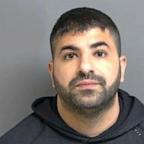Do Youth Carry the Civil Rights Torch?
July 23, 2004 — -- At 66, Marsha Joyner has been involved in civil rights issues her entire life. Her family has owned the Afro-American Newspaper chain in Baltimore, Md., since 1892. In 1954, she was one of the first five “colored” girls to attend Western High School there after Brown v. Board of Education integrated public schools.
So it was only natural that, during the push for civil rights in 1964, she was at the forefront as part of the Student Nonviolent Coordinating Committee, which coordinated actions such as sit-ins to fight to end segregation and coordinated voter registration of blacks in the South.
"It was a total commitment on everybody's part to change the way life was under Jim Crow," said Joyner, who lives in Honolulu, Hawaii. "Now it seems rather tame … we had sit-ins, we went to jail, but it wasn't nearly as hostile as the Deep South. It's easy to say that in retrospect. At the time, it seemed horrible to me."
July not only marks 40 years since President Lyndon B. Johnson signed the Civil Rights Act of 1964 outlawing racial discrimination. It's 40 years since Freedom Summer, a campaign by thousands of activists in the Deep South to register blacks to vote; 40 years since the establishment of Freedom Schools in Mississippi to teach poor black children; and 40 years since violent conflicts against such efforts, culminating with the murders of activists James Chaney, Andrew Goodman and Michael Schwerner by members of the Ku Klux Klan.
Many of those who were active in the civil rights movement remain involved with social causes today. But with all the progress of the past four decades, some wonder whether their efforts are, or can be, fully appreciated by younger generations.
Difficult to Comprehend
Julian Bond, a SNCC founder and its communications director in 1964, currently is chair of the National Association for the Advancement of Colored People. "There was almost a crisis a day the whole summer," he recalled of Freedom Summer. "We had roughly 1,000 people in Mississippi and they were daily being arrested or beaten or chased or harassed, you know, something was going on every moment every day."




